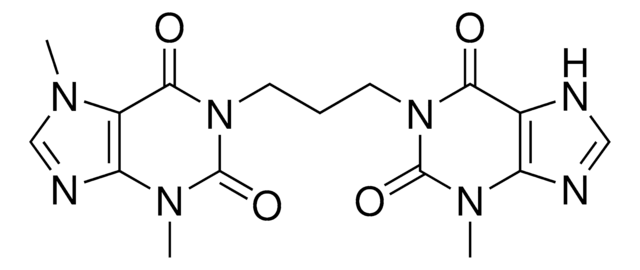270466
2-Methyl-1-propanol
suitable for HPLC, 99.5%
Synonyme(s) :
Isobutanol, Isobutyl alcohol
About This Item
Produits recommandés
Qualité
HPLC grade
Densité de vapeur
2.55 (vs air)
Pression de vapeur
8 mmHg ( 20 °C)
8.8 mmHg ( 0 °C)
Essai
99.5%
Forme
liquid
Température d'inflammation spontanée
801 °F
Produit purifié par
glass distillation
Limite d'explosivité
10.6 %
Technique(s)
HPLC: suitable
Impuretés
<0.050% water
Résidus d'évap.
<0.0005%
Indice de réfraction
n20/D 1.396 (lit.)
pb
108 °C (lit.)
Pf
−108 °C (lit.)
Densité
0.803 g/mL at 25 °C (lit.)
λ
H2O reference
Absorption UV
λ: 219 nm Amax: 1.00
λ: 230 nm Amax: 0.50
λ: 245 nm Amax: 0.10
λ: 250 nm Amax: 0.05
λ: 260 nm Amax: 0.03
λ: 330-400 nm Amax: 0.01
Chaîne SMILES
CC(C)CO
InChI
1S/C4H10O/c1-4(2)3-5/h4-5H,3H2,1-2H3
Clé InChI
ZXEKIIBDNHEJCQ-UHFFFAOYSA-N
Vous recherchez des produits similaires ? Visite Guide de comparaison des produits
Catégories apparentées
Application
- Identifying Sensory Attributes of Korean Rice Wine (Makgeolli): This study used 2-Methyl-1-propanol for sensory evaluation and chemical analysis to define the flavor profiles of traditional Korean rice wine, highlighting its application in food science and flavor analysis (Wong et al., 2023).
Mention d'avertissement
Danger
Mentions de danger
Conseils de prudence
Classification des risques
Eye Dam. 1 - Flam. Liq. 3 - Skin Irrit. 2 - STOT SE 3
Organes cibles
Central nervous system, Respiratory system
Code de la classe de stockage
3 - Flammable liquids
Classe de danger pour l'eau (WGK)
WGK 1
Point d'éclair (°F)
82.4 °F - closed cup
Point d'éclair (°C)
28 °C - closed cup
Faites votre choix parmi les versions les plus récentes :
Déjà en possession de ce produit ?
Retrouvez la documentation relative aux produits que vous avez récemment achetés dans la Bibliothèque de documents.
Les clients ont également consulté
Active Filters
Notre équipe de scientifiques dispose d'une expérience dans tous les secteurs de la recherche, notamment en sciences de la vie, science des matériaux, synthèse chimique, chromatographie, analyse et dans de nombreux autres domaines..
Contacter notre Service technique









